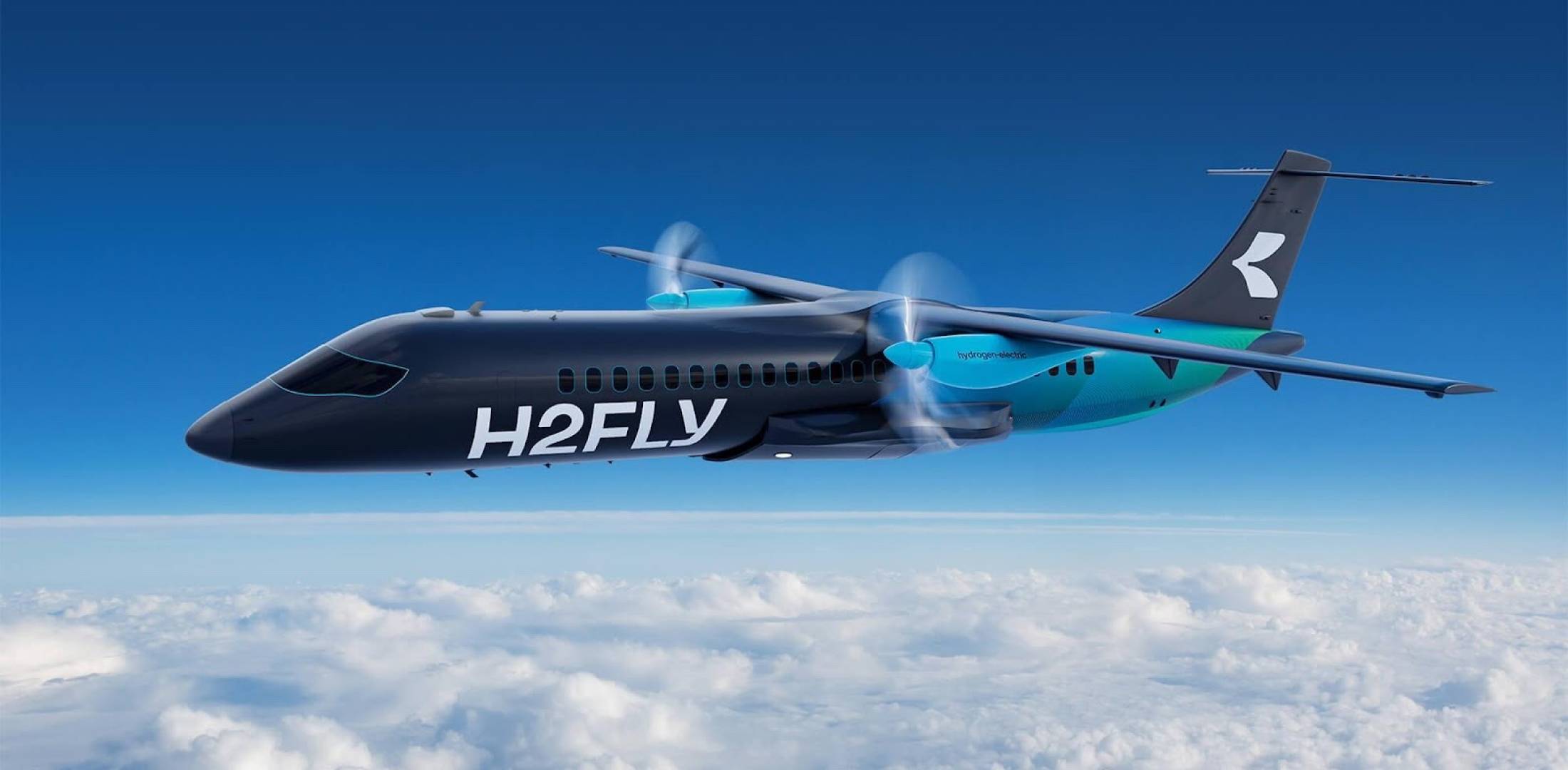Click Here to View This Page on Production Frontend
Click Here to Export Node Content
Click Here to View Printer-Friendly Version (Raw Backend)
Note: front-end display has links to styled print versions.
Content Node ID: 420065
H2Fly is stepping up its bid to win the race to power larger regional airliners with hydrogen after announcing plans for a new family of fuel cell systems that can operate at altitudes of up to 27,000 feet. The German company said the H175 technology will be scalable for a variety of hydrogen-electric aircraft in the 1-MW class and seating between 20 and 80 passengers.
According to H2Fly, the new propulsion systems will represent a significant step up in performance compared with hydrogen fuel cell demonstrator aircraft flown to date. The company aims to conduct its first flight demonstrations later this year with its own testbed as it works toward readying the new propulsion system for commercial service in 2027.
H2Fly is also working with Deutsche Aircraft on a higher-capacity fuel cell system for the manufacturer's planned D328eco modernization of the Dornier 328. The work also is part of the “328 H2-FC” project funded by the German Ministry for Economic Affairs and Climate Change.
“With the H175 we are introducing a completely new generation of aviation-grade fuel cell systems pushing forward the state of the art in the industry,” said H2Fly CEO and co-founder Josef Kallo. The program builds on the company's earlier contributions to the European Union’s Project Heaven initiative to develop liquid-hydrogen propulsion for airliners.
H2Fly will act as the integrator for powertrains that will include fuel cells, storage, and cooling systems, and an electric motor. At some point, it intends to select a strategic partner to provide the motors. In the longer term, the company aims to scale up the propulsion systems to support 2MW requirements.
The planned flight trials will use H2Fly’s HY4 demonstrator aircraft, which the company has already used to evaluate earlier systems. It has a potential maximum range of 1,500 km and is capable of flying at altitudes of up to 27,000 feet. Last year, the HY4 set what H2Fly claimed as a world altitude record for a hydrogen-powered passenger aircraft, reaching 7,230 feet.
According to H2Fly, several airlines have shown interest in adopting the H175 fuel cells as either retrofits for existing aircraft or for new models. Several other companies are chasing opportunities in the same sector, with ZeroAvia and Universal Hydrogen, having signed up multiple early commitments from airlines. In the Netherlands, Conscious Aerospace recently announced its own plans for a liquid hydrogen-based propulsion system.
"In the next 10 years there will be a big opportunity for retrofits because the industry has a big fleet of reliable aircraft that could work for the next 30 years," said Kallo. "However, to really get the most benefit from hydrogen we need new airframes for which the integration would be better because they could be aerodynamically optimized for all the hardware."
